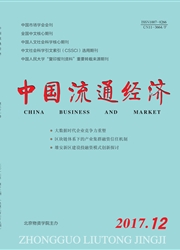

 中文摘要:
中文摘要:
随着企业社会责任实践和研究的发展,社会责任已经成为企业获取合法性认同、维持企业生存和促进发展的重要内容。但是由于企业某些特征的差异,导致企业对通过履行社会责任获取合法性的需求以及将合法性转化为提高自身生存发展的能力会存在差异。本文结合中国转型经济下特殊的制度环境,从制度理论合法性视角探讨企业社会责任与财务绩效之间的关系,认为企业所在区域的市场发展水平与企业所有权性质对两者间关系能够产生调节作用。采用中国上市公司数据进行检验,得出以下结论:(1)企业社会责任与财务绩效存在显著的正相关关系;(2)企业所在地区的市场发展程度越高,企业社会责任对财务绩效的正向影响越强;(3)与政府所有企业相比.民营企业的社会责任对财务绩效的正向影响更强。
 英文摘要:
英文摘要:
With the development of corporate social responsibility practice and research, social responsibility has become the key to obtain legitimacy to maintain the survival and promote the development of enterprises. But according to characteristics, enterprises may have different demand for legitimacy. Meanwhile, legitimacy may have different ability to promote the survival and development of enterprises. From the perspective of legitimacy of institutional theory, the relationship between corporate social responsibility and financial performance in China's special institutional environment during transition economy is analyzed. We proposed that market development and ownership moderate the relationship. Using data of Chinese listed companies, the empirical results show that there is significant positive relationship between corporate social responsibility and financial performance. Corporate social responsibility of firms located in more developed markets, has stronger positive influences on financial performance. Also, the positive relationship between private firms' corporate social responsibility and financial performance is stronger than that of government owned enterprises.
 同期刊论文项目
同期刊论文项目
 同项目期刊论文
同项目期刊论文
 期刊信息
期刊信息
